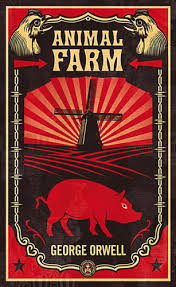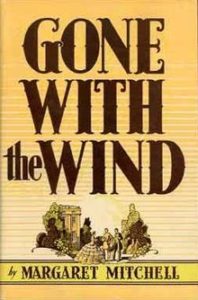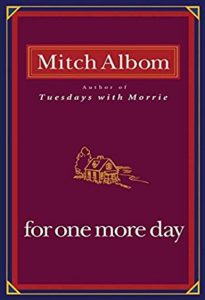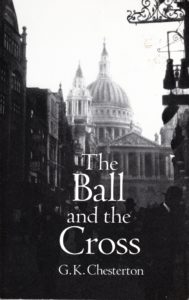As of March 1, 2018, I have completed the first 8 books in my 30-book reading challenge for 2018. So far, all the books I have read were on my original list.
In January, I completed Animal Farm (Audible) and Hillbilly Elegy (iBooks), and made my way about two-thirds the way through Gone With The Wind (Audible), which I finished in early February. Since then, I have also completed Up From Liberalism (iBooks), Just Mercy: A Story of Justice and Redemption (Audible), For One More Day (Audio CDs), The Ball and The Cross (print book), and The Vanishing American Adult (Audbile). Below is a quick review of each of those books. This will partly help me remember the very quick “what I got out of it” and “how to quickly explain it others.” But there’s so much more depth to all of them they my short synopsis.
 Animal Farm is a classic by George Orwell, published in 1945. A fictional story that serves as a reality check for all those with the good intentions of collectivism. Orwell was a former socialist himself and perhaps that is a good starting point to understand that when the animals take over the farm, they do so with the best of intentions to make each other equal and give out the dividends equal. But eventually, there is a power vacuum to be filled.
Animal Farm is a classic by George Orwell, published in 1945. A fictional story that serves as a reality check for all those with the good intentions of collectivism. Orwell was a former socialist himself and perhaps that is a good starting point to understand that when the animals take over the farm, they do so with the best of intentions to make each other equal and give out the dividends equal. But eventually, there is a power vacuum to be filled.
While they start with seven commandments about the rules of the farm, by the end of the story, they all get reduced to one principle: “all animals are equal, but some animals are more equal than others.” That’s a little bit of a spoiler, but the book is worth the read for the humorous way things go downhill for the animals on the farm.
 Hillbilly Elegy was published in 2016, and it is a personal first-hand account of what it’s like to grow up in the white working-class, particularly in Appalachia. JD Vance delivers a memoir for our time, as he recounts growing up in rural Kentucky and Ohio – facing all sorts of cultural issues: from single parenthood, a disjointed family, drug abuse, you name it. It’s all here. What’s more: JD is the one who “made it.” But as he tells the story of “upward mobility” which is so much ingrained as part of the fabric of the American dream, it seems that upward mobility itself is not only quite the struggle, but his traumatic upbringing is always with him. If you want to understand the challenges and struggles of white working-class America today, this is the book.
Hillbilly Elegy was published in 2016, and it is a personal first-hand account of what it’s like to grow up in the white working-class, particularly in Appalachia. JD Vance delivers a memoir for our time, as he recounts growing up in rural Kentucky and Ohio – facing all sorts of cultural issues: from single parenthood, a disjointed family, drug abuse, you name it. It’s all here. What’s more: JD is the one who “made it.” But as he tells the story of “upward mobility” which is so much ingrained as part of the fabric of the American dream, it seems that upward mobility itself is not only quite the struggle, but his traumatic upbringing is always with him. If you want to understand the challenges and struggles of white working-class America today, this is the book.
 Gone With The Wind by Margaret Mitchell may in fact be one of the best books ever to be written. That’s my take after “reading” it via Audible. The book is 63 chapters and 1,037 pages long. It was about 50 hours on Audible. And it was an epic that dominated my life for about a month. As I went through it, I just kept thinking how much of a “literary feat” this book was in every way. From its amazing prose, to helping us understand a different place and a different time, from the perspective not of the warrior on the battlefield (as the core of the book takes place during the U.S. Civil War) but from the perspective of the people – not just any people, but those of the upper class, and mostly from the perspective of the women. Written in 1927, this historical fiction guides us through how the South transformed through the course of a Civil War, while helping us understand the profound regional differences, and a lost era of Southern gentility. The protagonist in the novel, Scarlet O’Hara seems to me to embody the South at the time: she is ignorant of the vast changes taking place in her world and is trying to hold on to the traditions she knows, while not realizing her own internal faults and failures.
Gone With The Wind by Margaret Mitchell may in fact be one of the best books ever to be written. That’s my take after “reading” it via Audible. The book is 63 chapters and 1,037 pages long. It was about 50 hours on Audible. And it was an epic that dominated my life for about a month. As I went through it, I just kept thinking how much of a “literary feat” this book was in every way. From its amazing prose, to helping us understand a different place and a different time, from the perspective not of the warrior on the battlefield (as the core of the book takes place during the U.S. Civil War) but from the perspective of the people – not just any people, but those of the upper class, and mostly from the perspective of the women. Written in 1927, this historical fiction guides us through how the South transformed through the course of a Civil War, while helping us understand the profound regional differences, and a lost era of Southern gentility. The protagonist in the novel, Scarlet O’Hara seems to me to embody the South at the time: she is ignorant of the vast changes taking place in her world and is trying to hold on to the traditions she knows, while not realizing her own internal faults and failures.
 Up From Liberalism is one of the classic original political works by William F. Buckley, Jr. Towards the end of 2017, several members of the National Review editors podcast mentioned this was their favorite book by Buckley, so I immediately put it on my list. As Buckley states near the beginning of the book, “the job at hand,” in this book “is to discredit doctrinaire Liberalism and please the viability of enlightened conservatism.” Most of this book speaks of the limits of liberalism and the fanatical way it had impacted American society. Buckley published this book in 1959 and, even then, described that the “close observation of the Liberal-in-debate gives the impression that he has given conservatism a terminal audience. When a conservative speaks up demandingly, he runs the gravest risk of triggering the Liberal mania.” I found most of this book remarkable in that Buckley could have described Liberalism nearly identically the same way had he written this book in 2018.
Up From Liberalism is one of the classic original political works by William F. Buckley, Jr. Towards the end of 2017, several members of the National Review editors podcast mentioned this was their favorite book by Buckley, so I immediately put it on my list. As Buckley states near the beginning of the book, “the job at hand,” in this book “is to discredit doctrinaire Liberalism and please the viability of enlightened conservatism.” Most of this book speaks of the limits of liberalism and the fanatical way it had impacted American society. Buckley published this book in 1959 and, even then, described that the “close observation of the Liberal-in-debate gives the impression that he has given conservatism a terminal audience. When a conservative speaks up demandingly, he runs the gravest risk of triggering the Liberal mania.” I found most of this book remarkable in that Buckley could have described Liberalism nearly identically the same way had he written this book in 2018.
While he attacks Liberalism, he also takes on other subjects like the false notion of academic freedom. “In point of fact, very few people make up their own minds intellectually, for which we have Heaven and all the saints to thank. ‘Lean not on thine own understanding’ is a Biblical injunction, and there is no mischief maker quite like the person who assumes himself a totally autonomous intellectual and moral being and proceeds to inflict himself upon his fellow men. We stand, as Mr. Russell Kirk never tires of reminding us, on the shoulders of giants, and the moment we dispense with their support, we come crashing down to earth, where we live intellectual and moral lives circumscribed by drastically foreshortened horizons.” This book is full of all sorts of nuggets of wisdom and is a great reminder that Buckley is one of those giants upon whose shoulders we stand.
 Just Mercy: A Story of Justice and Redemption by Bryan Stevenson, published in 2014, details Stevenson’s role as a lawyer who came to the defense of many incarcerated men and women in the deep South, particularly in Alabama. He created a nonprofit in order to take on cases (mostly for those on death row) to get a fair hearing. Through the work of him and his colleagues, they were able to exonerate inmates who had been falsely accused. But perhaps more importantly, he tells the personal, human stories of many trapped in the prison system, and details what got them there in the first place. There is hope and redemption in this story, amid many examples of the ruining of a vast number of human lives that were caused by injustices in the criminal justice system. Race and income play a very major role as well, in a Southern society that is still struggling to come to terms with justice and equality.
Just Mercy: A Story of Justice and Redemption by Bryan Stevenson, published in 2014, details Stevenson’s role as a lawyer who came to the defense of many incarcerated men and women in the deep South, particularly in Alabama. He created a nonprofit in order to take on cases (mostly for those on death row) to get a fair hearing. Through the work of him and his colleagues, they were able to exonerate inmates who had been falsely accused. But perhaps more importantly, he tells the personal, human stories of many trapped in the prison system, and details what got them there in the first place. There is hope and redemption in this story, amid many examples of the ruining of a vast number of human lives that were caused by injustices in the criminal justice system. Race and income play a very major role as well, in a Southern society that is still struggling to come to terms with justice and equality.
 For One More Day is a story retold by Mitch Albom and published in 2006. I couldn’t understand whether this story was true or based on a true story. But the point of it was clear: if you were given one more day with a loved one who has passed on, what would that day look like? What would you talk to them about? I found most of this short book very sad, for it was told through the lens of a man who had many regrets about the way he treated his mother and how he never told her how much he loved her or appreciated her while she was alive – partly because he didn’t come to terms with her important role in his life while she was alive. It was only after she was gone that he realized how much she did for him in his life.
For One More Day is a story retold by Mitch Albom and published in 2006. I couldn’t understand whether this story was true or based on a true story. But the point of it was clear: if you were given one more day with a loved one who has passed on, what would that day look like? What would you talk to them about? I found most of this short book very sad, for it was told through the lens of a man who had many regrets about the way he treated his mother and how he never told her how much he loved her or appreciated her while she was alive – partly because he didn’t come to terms with her important role in his life while she was alive. It was only after she was gone that he realized how much she did for him in his life.
The man struggled so much with so many failures in his life (with his own marriage, children, career, and alcoholism) that he attempted suicide, only to fail at that. He replayed his regrets over and over in his mind and this was almost a difficult story to listen to. Because it was so sad (to me anyway), I feel it’s a hard book to recommend. But the silver lining was all the short nuggets of wisdom contained throughout the book, mostly by his mother, who visited him for one more day. He and his mother came to terms on that day and he was able to live in peace thereafter. While this seemed to be a hard story to read, due to its sadness, it is actually an enlightening one: appreciate every day you have with your loved ones and don’t leave anything on the table, for you don’t know if today is the last opportunity to forgive them, or tell them how much you love them and appreciate them. It’s a reminder to approach today (and every day) as that one more day you are blessed to have with them.
 The Ball and the Cross is a Christian novel by G.K. Chesterton. Written in the first decade of the 20th Century, this story features a Christian and an atheist who both feel so much threatened by the other, that they seek a “duel” – with the purpose of one being a victor and one being killed. It is a humorous story, as polite society will not allow them to duel, so they keep trying to get away from the authorities who are after them, in order to duel among each other. Through their experience of temporarily allying with each other to ultimately attempt to kill one another, they have many deep conversations about their own beliefs and about how much better they both are than others in their society – because at least they care enough to fight (to the death!) for their ideas. At times this was a difficult novel to read only because every page and every sentence requires focused attention as to not miss the point. And even by the end, it is difficult to determine what the total point was – but the ball represents the sphere of the world and the rationalist thought of the Atheist, while the Cross represents the spirit of the Christian. As it turns out, the real antagonist of both the Christian and the atheist are the rest of the world, which tries to prevent this duel over mere religion. Much of the world has become agnostic to the question that these two warriors are at least taking on.
The Ball and the Cross is a Christian novel by G.K. Chesterton. Written in the first decade of the 20th Century, this story features a Christian and an atheist who both feel so much threatened by the other, that they seek a “duel” – with the purpose of one being a victor and one being killed. It is a humorous story, as polite society will not allow them to duel, so they keep trying to get away from the authorities who are after them, in order to duel among each other. Through their experience of temporarily allying with each other to ultimately attempt to kill one another, they have many deep conversations about their own beliefs and about how much better they both are than others in their society – because at least they care enough to fight (to the death!) for their ideas. At times this was a difficult novel to read only because every page and every sentence requires focused attention as to not miss the point. And even by the end, it is difficult to determine what the total point was – but the ball represents the sphere of the world and the rationalist thought of the Atheist, while the Cross represents the spirit of the Christian. As it turns out, the real antagonist of both the Christian and the atheist are the rest of the world, which tries to prevent this duel over mere religion. Much of the world has become agnostic to the question that these two warriors are at least taking on.
 The Vanishing American Adult: Our Coming of Age Crisis and How to Rebuild a Culture of Self-Reliance by Ben Sasse is one of those books that makes me say, “If every American today could read and contemplate this book, we would live in a much better society.” Ben Sasse is a U.S. Senator from Nebraska, but this book, published in 2017, is not about politics at all. It’s about culture. As Sasse has said over and over – we have so many debates in Washington and across the country that cannot be resolved because we can’t even agree on what the problem is. In the first third of the book he identifies the problem: we live in a culture where the responsible, hard-working adult has vanished. He spends the next two-thirds of the book tackling that problem with proposed solutions for individuals and families, and particularly parents. It’s not a book explaining every way to raise your child, but it’s a book that gets us back to the basics of what makes a country or civilization great – and that starts with parents raising their children to become self-reliant adults.
The Vanishing American Adult: Our Coming of Age Crisis and How to Rebuild a Culture of Self-Reliance by Ben Sasse is one of those books that makes me say, “If every American today could read and contemplate this book, we would live in a much better society.” Ben Sasse is a U.S. Senator from Nebraska, but this book, published in 2017, is not about politics at all. It’s about culture. As Sasse has said over and over – we have so many debates in Washington and across the country that cannot be resolved because we can’t even agree on what the problem is. In the first third of the book he identifies the problem: we live in a culture where the responsible, hard-working adult has vanished. He spends the next two-thirds of the book tackling that problem with proposed solutions for individuals and families, and particularly parents. It’s not a book explaining every way to raise your child, but it’s a book that gets us back to the basics of what makes a country or civilization great – and that starts with parents raising their children to become self-reliant adults.
There is a chapter that advocates more travel – and how to travel best – to expand the mind and build a reliant, creative individual that is in touch with more than just their own town. There is a chapter on building your own family bookshelf – books that touch the soul and build character and increase knowledge about history, culture, economics, and more. Every family’s bookshelf will be different, but encompass mostly the same goals. This book will help each individual and family to create good habits, put a focus on the things that are lasting and the things that matter, and ultimately help us restore a better, more sustainable culture to make this country great again. We’ve been given a Republic, but it’s what we do at home that will ultimately decide if we are to keep it.
***
The combined effort of these books have really reminded me of the vast depth of the human experience. From our souls to our families to the society at large, there is a deep complexion to each human person and each community and society. I hope you might be inspired to pick up at least one of the books and dive in and discover the deepness that each has to offer and what they can teach us about being a better human being.
